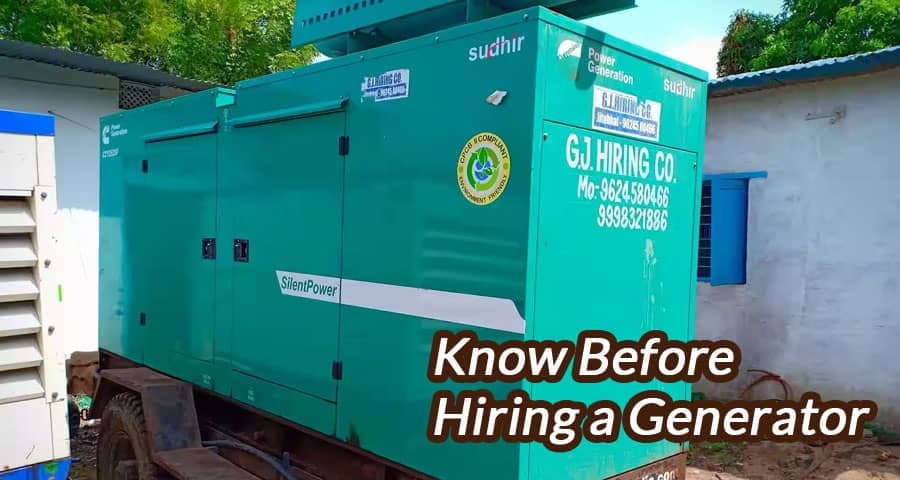What You Need to Know Before Hiring a Generator

Generators play a crucial role in ensuring power supply during emergencies or when off-grid. Understanding the nuances of generator hire is essential to make informed decisions, ensuring you have a reliable power backup without unnecessary expenses or risks.
Generators come in various types and sizes, each catering to specific needs. Before diving into the hiring process, it's vital to assess your power requirements accurately. Calculating the wattage needed and understanding the difference between portable and standby generators sets the groundwork for a suitable selection.
Location and installation play pivotal roles in maximizing the efficiency and safety of a generator. Proper placement, following guidelines, and considering installation factors are crucial steps often overlooked but significantly impact functionality.
Regular maintenance and service are non-negotiable aspects of generator usage. Knowing the availability of service and ensuring timely maintenance prevents unexpected breakdowns and extends the generator's lifespan.
Financial considerations shouldn't be ignored. While hiring might seem cost-effective initially, understanding long-term financial implications is necessary. Comparing costs with purchasing and analyzing reliability and durability factors contribute to making an informed decision.
Environmental impact is a growing concern. Exploring eco-friendly options and understanding how generator usage impacts the environment allows for more conscious choices.
Safety measures can't be overstressed. Knowing safety protocols and mitigating risks while using generators is paramount for your well-being.
Checking customer reviews, understanding the company's reputation, comparing rental providers, and comprehending contract terms are essential steps before finalizing a hire.
Emergency preparedness also involves having a generator. Understanding its role during unforeseen circumstances and the availability of customer support during emergencies ensures peace of mind.
Conclusion
In conclusion, hiring a generator necessitates a comprehensive understanding of various factors. From power assessment to environmental impact, safety measures to customer support, considering these aspects ensures a well-informed decision.
FAQs
Can I install a generator myself?
Generally, it's recommended to have professionals handle installation for safety and functionality.
What type of fuel is best for generators?
This varies based on usage and preference. Gasoline, diesel, propane, and natural gas are common options.
How often should I service the generator?
Regular servicing, typically every 6-12 months, ensures optimal performance.
Are standby generators better than portable ones?
It depends on your specific needs. Standby generators offer continuous power, while portable ones are more flexible.
What happens if the generator breaks down during a rental period?
Reputable providers offer swift assistance or replacement, as specified in the agreement.
